Onco-Hematology and Immunotherapy
A special issue of Cells (ISSN 2073-4409). This special issue belongs to the section "Cellular Immunology".
Deadline for manuscript submissions: 31 October 2024 | Viewed by 1194
Special Issue Editors
Interests: leukemia; molecular biology; oncology
Special Issues, Collections and Topics in MDPI journals
Special Issue Information
Dear Colleagues,
Leukemias and lymphomas are deadly cancers that mainly affect adults, but leukemias are the second most frequent cancer among children. Today, adult and children with different diseases are treated with different protocols.
New treatments are warranted, and, recently, immunotherapy has appeared as an efficient new tool. Cancers (in general) and onco-hematology (in particular) escape the normal immune control. So, on one side, a better understanding of this phenomenon is required; on the other side, immunotherapy in leukemias aims to boost the immune system in order to fight against cancer cells (leukemias or lymphomas in onco-hematology). The main tools are T cells and antibodies, but trials are also in progress with immune check point inhibitors, leukemia and lymphoma vaccines, and immunomodulators. Allograft in chronic myeloid leukemia is certainly the first example, followed by T cell infusions after allogeneic bone marrow transplantation. The main problems are to understand the normal immune control and its escape in the case of leukemia and lymphomas, as well as to identify the right patients who will benefit from these treatments. So, it is clearly a vast area of research and is also a very promising new tool for precision medicine which could be associated with new or hold drugs.
Prof. Dr. Jean Gabert
Prof. Dr. Régis T. Costello
Guest Editors
Manuscript Submission Information
Manuscripts should be submitted online at www.mdpi.com by registering and logging in to this website. Once you are registered, click here to go to the submission form. Manuscripts can be submitted until the deadline. All submissions that pass pre-check are peer-reviewed. Accepted papers will be published continuously in the journal (as soon as accepted) and will be listed together on the special issue website. Research articles, review articles as well as short communications are invited. For planned papers, a title and short abstract (about 100 words) can be sent to the Editorial Office for announcement on this website.
Submitted manuscripts should not have been published previously, nor be under consideration for publication elsewhere (except conference proceedings papers). All manuscripts are thoroughly refereed through a single-blind peer-review process. A guide for authors and other relevant information for submission of manuscripts is available on the Instructions for Authors page. Cells is an international peer-reviewed open access semimonthly journal published by MDPI.
Please visit the Instructions for Authors page before submitting a manuscript. The Article Processing Charge (APC) for publication in this open access journal is 2700 CHF (Swiss Francs). Submitted papers should be well formatted and use good English. Authors may use MDPI's English editing service prior to publication or during author revisions.
Keywords
- immunotherapy
- onco-hematology
- CAR T cells
- NK cells
- immune system
- immune cells
- leukemias
- lymphomas







